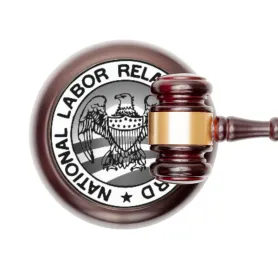On August 22, 2019, a three-member panel of the National Labor Relations Board (NLRB) ruled unanimously in favor of the Pittsburgh Post-Gazette, dismissing an unfair labor practice charge filed by seven unions that represent newspaper employees. The NLRB found the Post-Gazette was not required to pay a 5 percent increase in annual health insurance premiums following the expiration of collective bargaining agreements. In finding the Post-Gazette did not violate any contractual or statutory duty, the Board restored a common sense and historically sound interpretation of employer obligations under the “dynamic status quo”—effectively reversing the NLRB’s shocking decision in Finley Hospital, 362 NLRB 915 (2015).
The “Startling and Troubling” Finley Hospital Decision
In its controversial decision in Finley Hospital, the NLRB held an employer had a statutory duty to maintain the “dynamic status quo” by continuing to grant 3 percent annual pay increases after the collective bargaining agreement had expired, even though the collective bargaining agreement lasted only one year, stated its obligations were for “the duration of the contract,” and there was no historical practice of 3 percent annual pay raises.
The “dynamic status quo” principle had been developed and applied by the NLRB where employees had received wage or benefit increases with such sustained frequency and regularity that the increases were regarded as established terms of employment that an employer was obligated to continue until/unless it entered a bargaining agreement with different terms or reached a bargaining impasse. Prior to Finely Hospital, the NLRB had never found a “dynamic status quo” of annual increases based on a one-year contract. The Board in Finley Hospital also placed the burden on the employer to prove the one-year agreement did not establish the status quo and that the union waived the right to insist on continued 3 percent pay raises.
In an earlier decision, dissenting NLRB member Brian E. Hayes called Finley Hospital “startling and troubling,” noting “[e]mployers must now bargain for ironclad language expressly providing that no increases will be paid beyond a contract term, or face the consequences of having to continue those increases until they reach an agreement on a successor contract or impasse.”
The Pittsburgh Post-Gazette Decision
The Pittsburgh Post-Gazette has longstanding bargaining relationships with each of the seven unions that represent newspaper employees. In late 2014, the Post-Gazette signed new and essentially identical collective-bargaining agreements with each of the seven unions. Those agreements made significant changes in health insurance. The employees historically had received employer-provided coverage, but now received benefits through a Teamsters health and welfare fund. The employer was required to contribute $1,229 per employee per month to the fund for calendar year 2015, and employer “contributions for years 2016 and 2017 [were] not [to] exceed a 5.0% annual increase above the $1,229 per month . . . for calendar year 2015.” For both 2016 and 2017, the fund requested, and the employer granted, a 5 percent increase in contributions.
The Post-Gazette and two of the unions agreed to extend their agreements beyond March 2017, while the other five agreements expired in March 2017. In the fall of 2017, the fund requested another 5 percent increase, and the unions maintained that the Post-Gazette had to pay the increase because the expired agreements did not include a cap on contributions after 2017. The Post-Gazette asserted it was required only to continue contributions at the 2017 level, as it had not agreed to any increases beyond 2017. The unions filed a charge with the NLRB alleging the 2014–2017 collective-bargaining agreements established a dynamic status quo of 5 percent annual increases, and the Post Gazette’s 2018 refusal to increase its contributions was a unilateral change that violated Sections 8(a)(5) and (1) of the National Labor Relations Act (NLRA).
The administrative law judge (ALJ) agreed with the unions. The NLRB reversed the ALJ and found the Post-Gazette did not change a term or condition of employment when it maintained its contributions to the fund at the 2017 rate. The Board essentially rejected Finley Hospital and ruled the employer’s agreement to increase contributions to the fund for 2016 and 2017 did not create a mandate to continue increasing its contributions to the fund after 2017.
Contractual vs. Statutory Duties
The Board distinguished the Post-Gazette’s contractual and statutory bargaining duties. An employer’s contractual obligations generally end when the agreement expires, but an employer still has a statutory duty to maintain the status quo on mandatory subjects of bargaining until the parties reach a new agreement or a valid impasse. As a result, an employer’s contractual and statutory obligations are not necessarily coextensive.
The Board first found the Post-Gazette did not breach any contractual duty to increase fund contributions with the two unions with which it had extended the agreements beyond March 2017. The continuing agreements established a baseline contribution level for 2015 and required the Post-Gazette to pay contribution increases for 2016 and 2017 only. The NLRB found the employer was not obligated to comply with the fund’s contribution-increase request because those agreements did not provide for contribution increases by the employer after 2017.
The Board then ruled the Post-Gazette did not abrogate its statutory duty to maintain the status quo of health insurance contributions for the unit employees covered by the five expired agreements. The Board stated it was well established that “the status quo is . . . defined by reference to the substantive terms of the expired contract,” and the ALJ’s finding that the expired agreements created a status quo of the employer paying annual contribution increases did not reflect the terms of the agreements. Because the agreements explicitly limited increases to 2016 and 2017 and said nothing about future increases, the Board found the status quo to be the employer contribution rate for 2017. The Board attempted—in a footnote—to distinguish prior cases in which it had held employers unlawfully discontinued a status quo of providing wage or benefit increases where language providing for increases was not limited to specified years. The Board included Finley Hospital in this footnote even though the contract in Finley Hospital was, in fact, limited to a specified year—the one and only year of the contract. In the same footnote, the Board stated, “[w]e express no view as to whether [Finley Hospital and the other cases] were correctly decided.”
Practical Impact
The Board’s decision in Pittsburgh Post-Gazette provides employers more flexibility and clarity as to their obligations under the NLRA. The NLRB’s restoration of the pre-Finley Hospital interpretation of the dynamic status quo, like its decision in Raytheon Network Centric Systems, 365 NLRB No. 161 (December 15, 2017), provides employers more breathing room during collective bargaining negotiations and more flexibility to hold their ground or act during a contract hiatus, while limiting unions’ ability to hold employers hostage on unilateral actions through dilatory bargaining.





 />i
/>i

